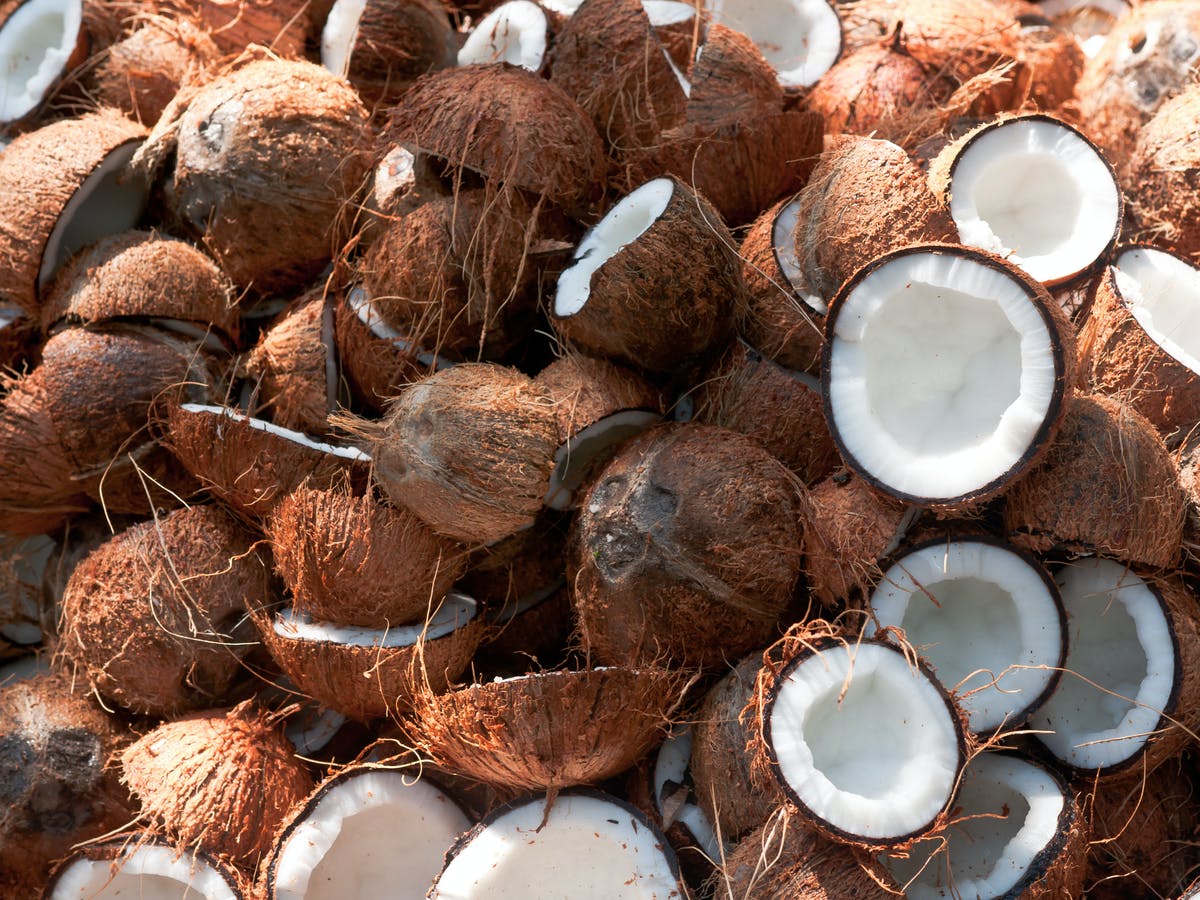Nigeria can attain sufficiency in coconut by 2030 – Producers
The Jigawa State chapter of the National Coconut Producers, Processors and Marketers Association (NACOPPMAN) has inaugurated the 2021 coconut planting season in the state. The coordinator of the association, Hajiya Sakina Muhammad, stated this during the exercise, with the theme, ‘One family, three coconut trees,’ in Dutse. South-East crisis: Ebubeagu fails to roar, 62 days […]

coconuts
The Jigawa State chapter of the National Coconut Producers, Processors and Marketers Association (NACOPPMAN) has inaugurated the 2021 coconut planting season in the state.
The coordinator of the association, Hajiya Sakina Muhammad, stated this during the exercise, with the theme, ‘One family, three coconut trees,’ in Dutse.
- South-East crisis: Ebubeagu fails to roar, 62 days after formation
- June 12: Peaceful protests, rallies rock states
Hajiya Sakina said the gesture was aimed at having coconut sufficiency in Nigeria by 2027.
“The parent body of this association is the Federal Ministry of Industry, Trade and Investment.
“Coconut is a tropical plant that can grow anywhere under any condition, and Jigawa happens to be among the states in the North where the cultivation of coconut thrives,’’ she said.
Hajiya Sakina said coconut had become a major foreign exchange earner for countries that produce it in large quantities.
She quoted the Minister of Agriculture and Rural Development, Alhaji Sabo Nanono as saying that 653 billion nuts were produced in 2013 and Nigeria currently produces 265,000 metric tonnes.
According to her, this makes Nigeria the 18th producer of coconut in the world.
She said the continuous dwindling of income from oil in Nigeria informed the need to look at ways of earning foreign exchange from other sources, hence the need to boost the production of crops like coconut.
“A barrel of coconut oil in the international market today stands at $12 per barrel, while a barrel of crude oil is oscillating between six to seven dollars per barrel.
“It will interest you to know that four litres of palm oil is N5,000 while four litres of coconut oil is N15,000.
“Coconut has the capacity to be a hard foreign exchange earner; that is why the NACOPPMAN decided to come up with the slogan of planting 10,000 hectares per state.
“It is in this regard that the national president of the association, Mrs Nna Okoji, appealed to state governments to allocate 10,000 hectares of land for the cultivation of coconut so that by 2030, Nigeria can attain self-sufficiency,’’ she said.
She further said that coconut could be used for eco-friendly biofuel for cars. She said there are ongoing researches on using coconut oil for treating cancer.
She described the market for coconut both locally and internationally as huge, pointing out that a bag of coconut before the COVID-19 pandemic was N8,000, but now N25,000.
According to her, coconut has over $400billion market worldwide.
“Although a typical coconut tree takes five to seven years before yielding fruits, it is an investment that’s worthwhile because once it starts, you will reap the benefits for between 60 and 80 years.
“I have good news for those of you present here today. I am pleased to inform you that the species of coconut we are inaugurating today is the typical Malaysian dream dwarf plant that produces more than a 100 fruits in a tree, annually. This variety produces fruits within three years.
“At this point, I want to specifically appreciate the support given to the NACOPPMA by the Federal University, Dutse, Jigawa, Ministries of Works and Housing, Agriculture and Rural Development, as well as the Jigawa Rural Development Agency,’’ the coordinator said.
She urged people to invest in coconut farming as it has short and long term benefits.
She also said that 1,000 farmers were registered by the group in the state for the exercise; and assured that they would be linked up with the Nigeria Incentives-based Risk Sharing System for Agricultural Lending (NIRSAL) to access loans. (NAN)
